Starting an enterprise that aims to offer breads and pastries has part of its future guaranteed in Cuba, where they are so needed and desired. Even more so if the quality of the products is the main concern of its creators.
The Pan de La Habana, recently opened in the capital’s Vedado, is a business with a novel offer that includes hard-crusted bread as one of its main products, made in favor of of its consumers’ best nutrition.
It is not a family-owned business, as has so often happened in this bakery trade; one can say that chance decided the destiny of this “bakery,” which will be much more than that.
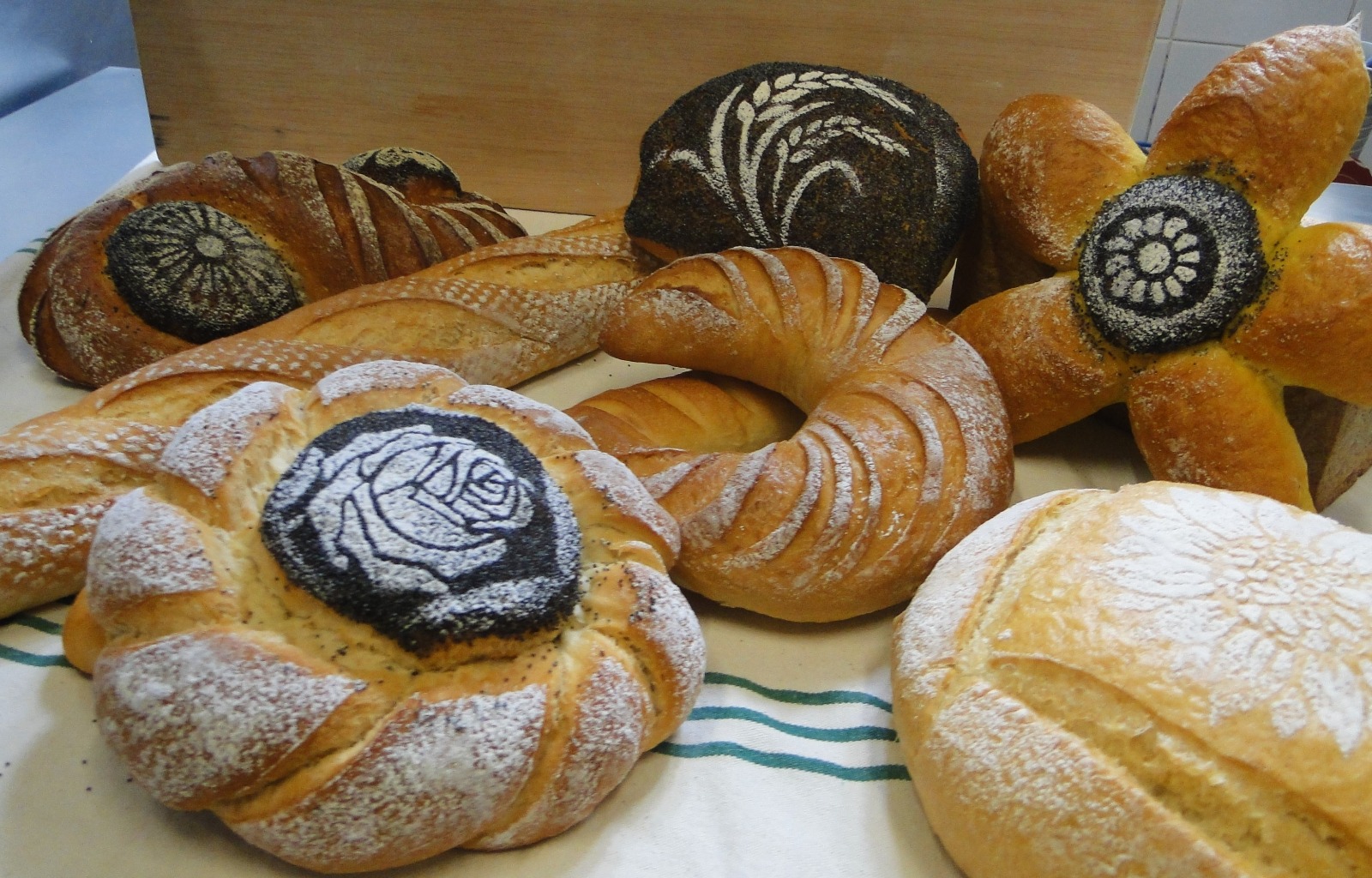
Laura María Meguis Orue, its main partner, has lived outside of Cuba for more than 30 years, but she never lost her roots. “In the end we have made a family. I always say that I don’t want a business with workers; I want people who integrate, people who feel what I feel. If a loaf of bread goes wrong, everyone is responsible, even if there is a boss.”
“With the aim of creating a unique enterprise, we began to call everyone and we found two great master bakers who have helped us a lot.”
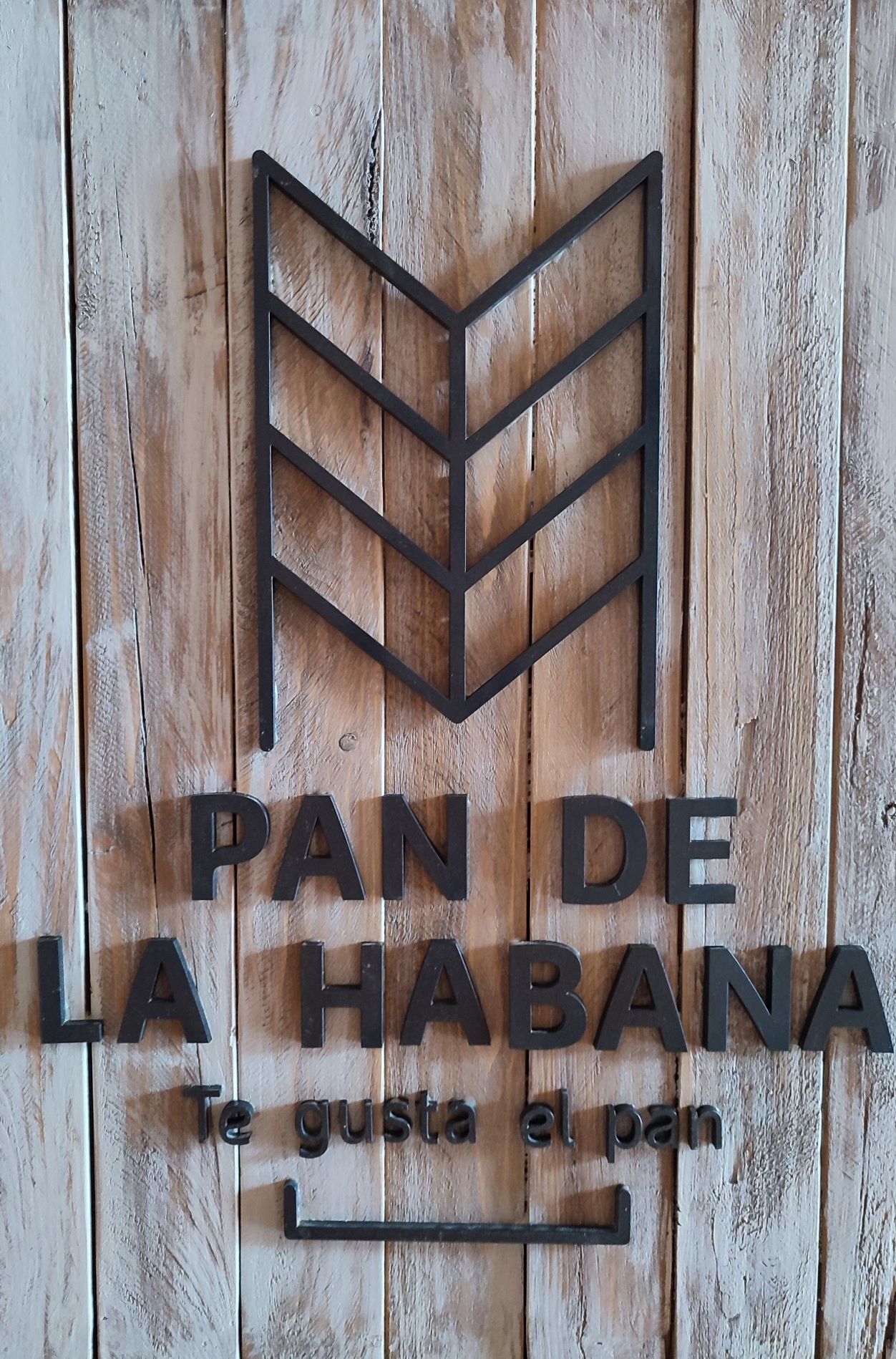
Ovens and flours
Josep Antoni Ribas is one of the most important master bakers in Spain. Since 1978 he has worked in the bread sector; he studied engineering, but he combined the two professions because his father had already ventured into dealing with ovens and flours. Of Spanish origin but internationalized thanks to bread, he currently lives in Costa Rica and his main destination is Central America, where he gives lectures and consultancies. He will soon open his academy in Panama to train bakers from around the world. But before that he has focused his energies on Pan de La Habana.
“It is not my first time in Cuba, but this time it is in a professional capacity; I came to work,” says Antoni Ribas as he explains what the business will be like.
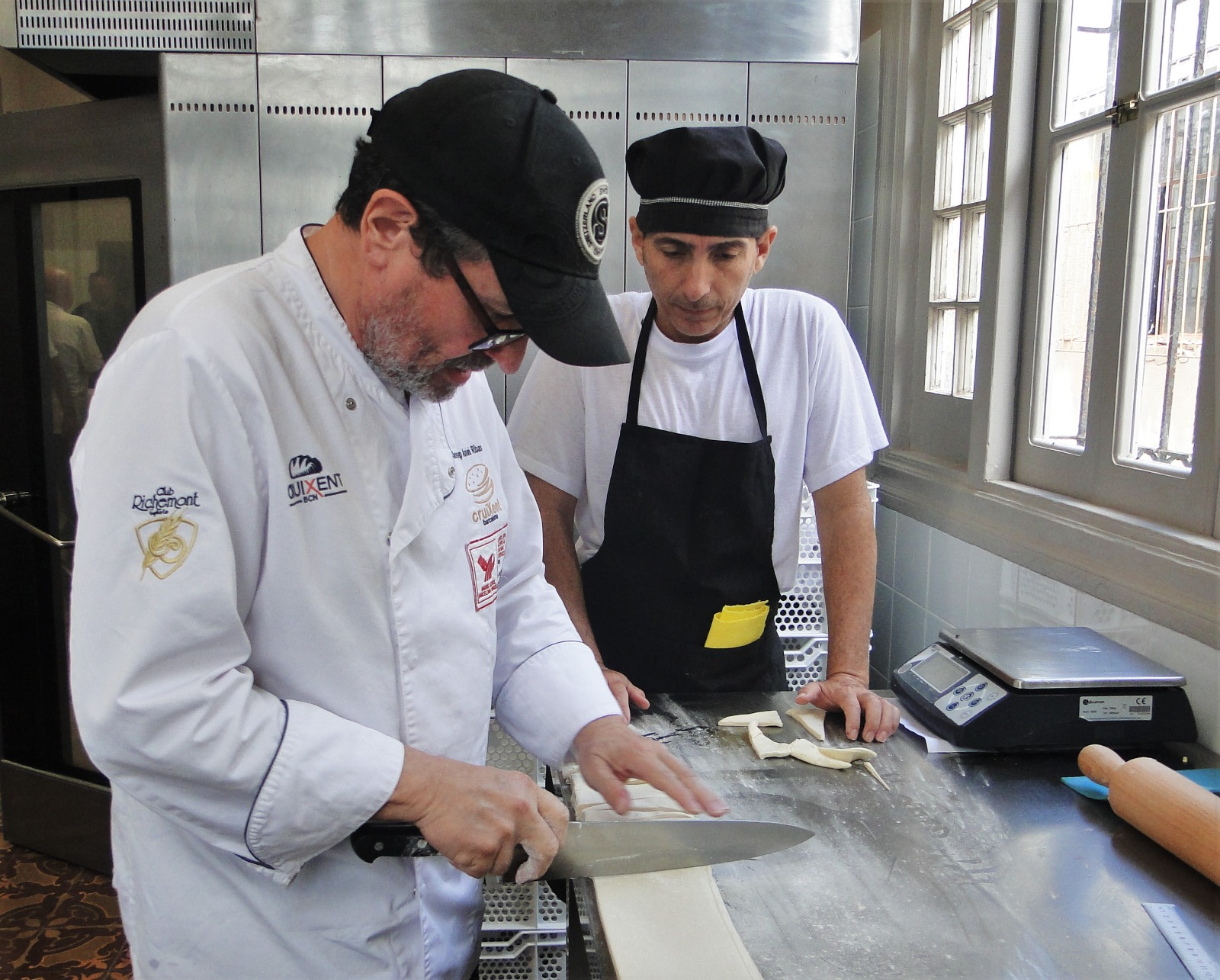
“Three bakers make the preparations with the recipes that are already predefined. At first we focused on small pieces to give to taste and check that the recipes were well applied or if they needed more salt or more or less time in the oven. There was a lot of learning during those days.”
Antoni brought all the technology from Barcelona. They are the same machines that he has operated for more than three decades and that are now assembled in Cuba.
The humidity on the island, so typical of its climate, has not prevented the recipes and the waiting and cooking times from being made like a booklet, and that has been thanks to the conditions that have been achieved in the bakery, as they have air-conditioned storage, which facilitates the extraction of moisture from the flour with excellent conservation.
“We are going to apply the same methods that we apply there [in Spain], with breads with long fermentation, without any additives. Everything is natural bread with sourdough, flour, water, salt and very little yeast; we work with ten times lower doses than normal, that is why we have more pronounced bread flavors, because yeast usually kills the taste of bread.”
But like any big project, there are always details to watch out for, so that they do not become problems. “The containers do not have an exact arrival date. Even if it is planned for one day, it can be delayed and that affects the production chain. That is why we have guaranteed a stock that allows us to make up for this delay.”
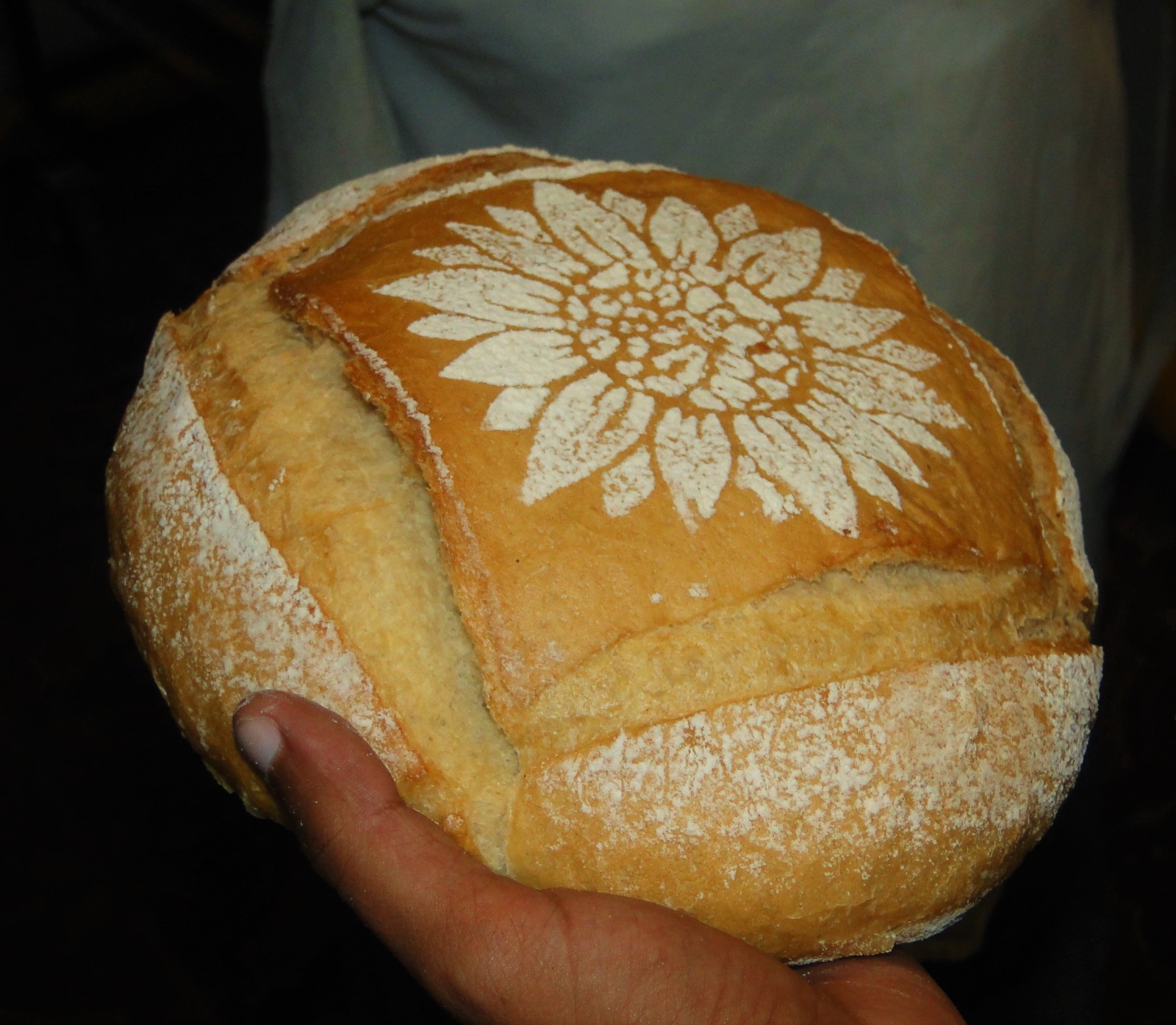
Sourdough
“The flours come a little depleted at the time of fermentation and that is due to the fortification itself. We use Spanish flours that do not have any type of additive inside, so we are getting the authentic wheat flavor out well. We want the bread to taste like bread; for this we bring flour from the largest flour mill in Spain and its quality is optimal and recognized worldwide, we use top-quality raw materials, it is a process that needs to be the best,” says Antoni Ribas.
Sourdough is a culture of bacteria that is created. There are various methods, but the most traditional is based on apples. They are cut and left to ferment in water. After five days, the fermented water is used to make the first dough, using the same amount of water as flour.
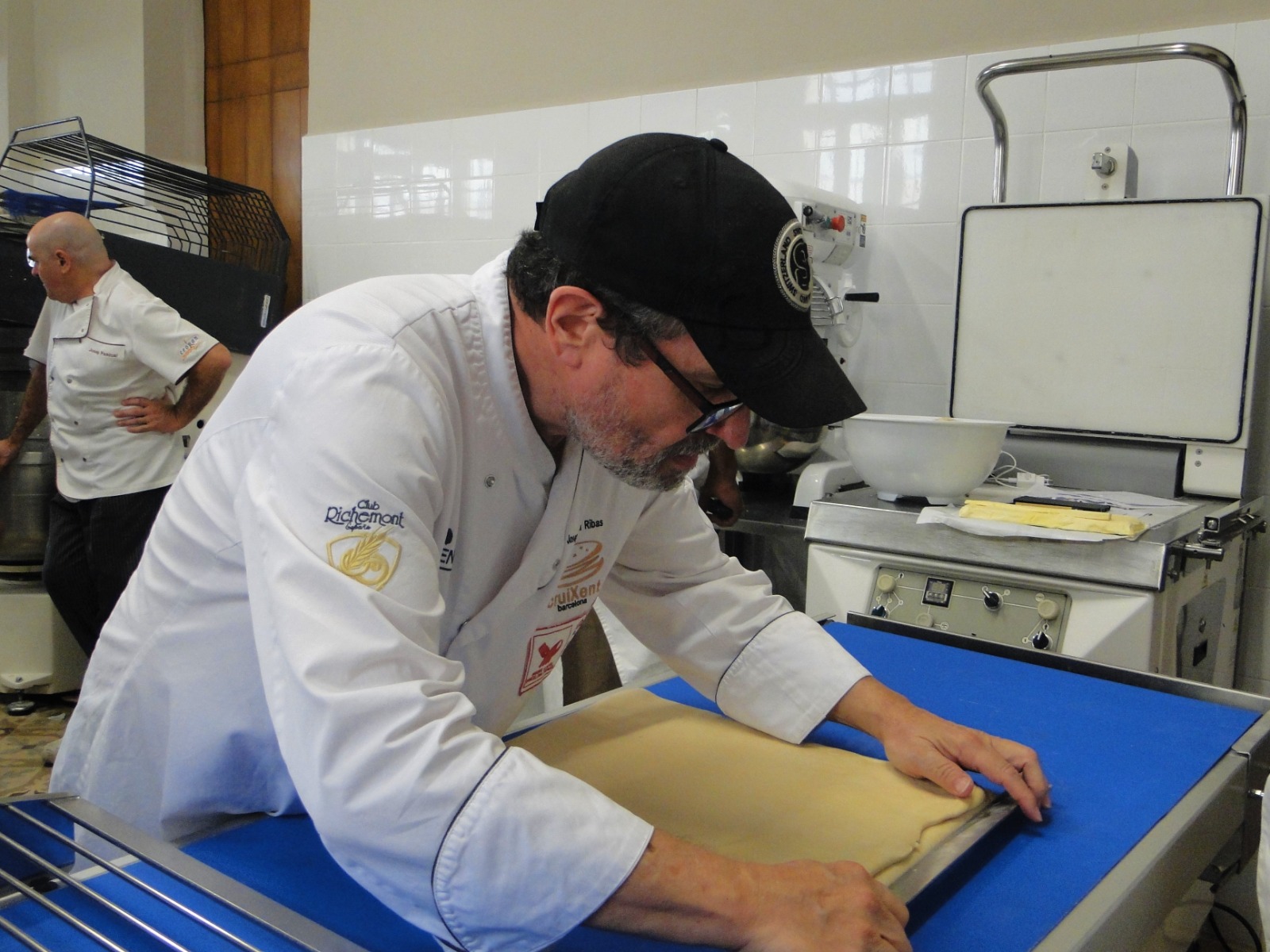
Antoni Ribas explains the process of making sourdough like a teacher in a chemistry class, but with more passion.
The master baker has explained the same process to each of the bakery workers, not only those who will make the bread, but also those who store the flour, those who will sell it, those in marketing, and himself, so as to never forget that sourdough bread is the best in the world.
All the workers at Pan de La Habana know what they will sell, they know that this “new product” helps digestion and strengthens intestinal flora, they also know how to explain that at the level of inputs it is cheaper and what makes it more expensive is the preparation due to the cost of personnel and time: it is an artisan bread!
“We know that, in addition to making good bread, we have to promote the culture of consumption of customers, so that they know what they are buying,” explains Antoni Ribas, convinced that the genetic and cultural charge of consuming bread will be on their side.
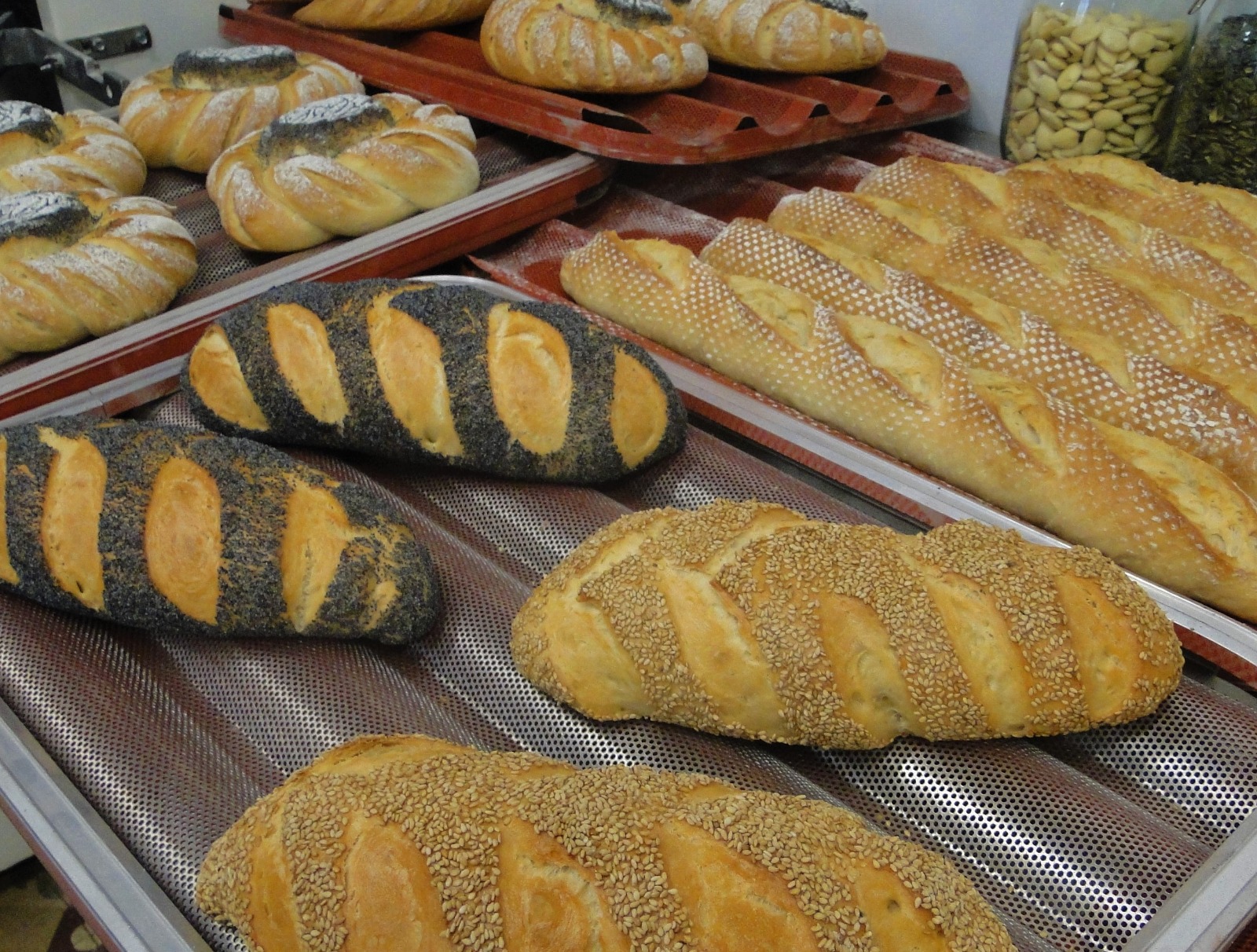
The perfect team work
In addition to making bread, the young people who have joined Pan de La Habana learned about nutrition, about the history of each bread, about how flours are made.
“Brioche dough is not a common bread dough, it is for making sweet breads, with an enriched dough that has more egg, more sugar and other ingredients that provide more in nutritional terms, and give greater softness. “It is more artisanal in the production process,” says Enrique, one of the assistants who has learned with the master bakers in the training days prior to opening to the public.
Teamwork in a bakery is essential. The assistants play an essential role in lightening the workload, so it is important that they know the specifics of each process.
Enrique is very clear about it: “my job consists above all in helping to prepare the dough, in keeping things clean, in having the ingredients ready for each recipe, in making sure that nothing is missing.”
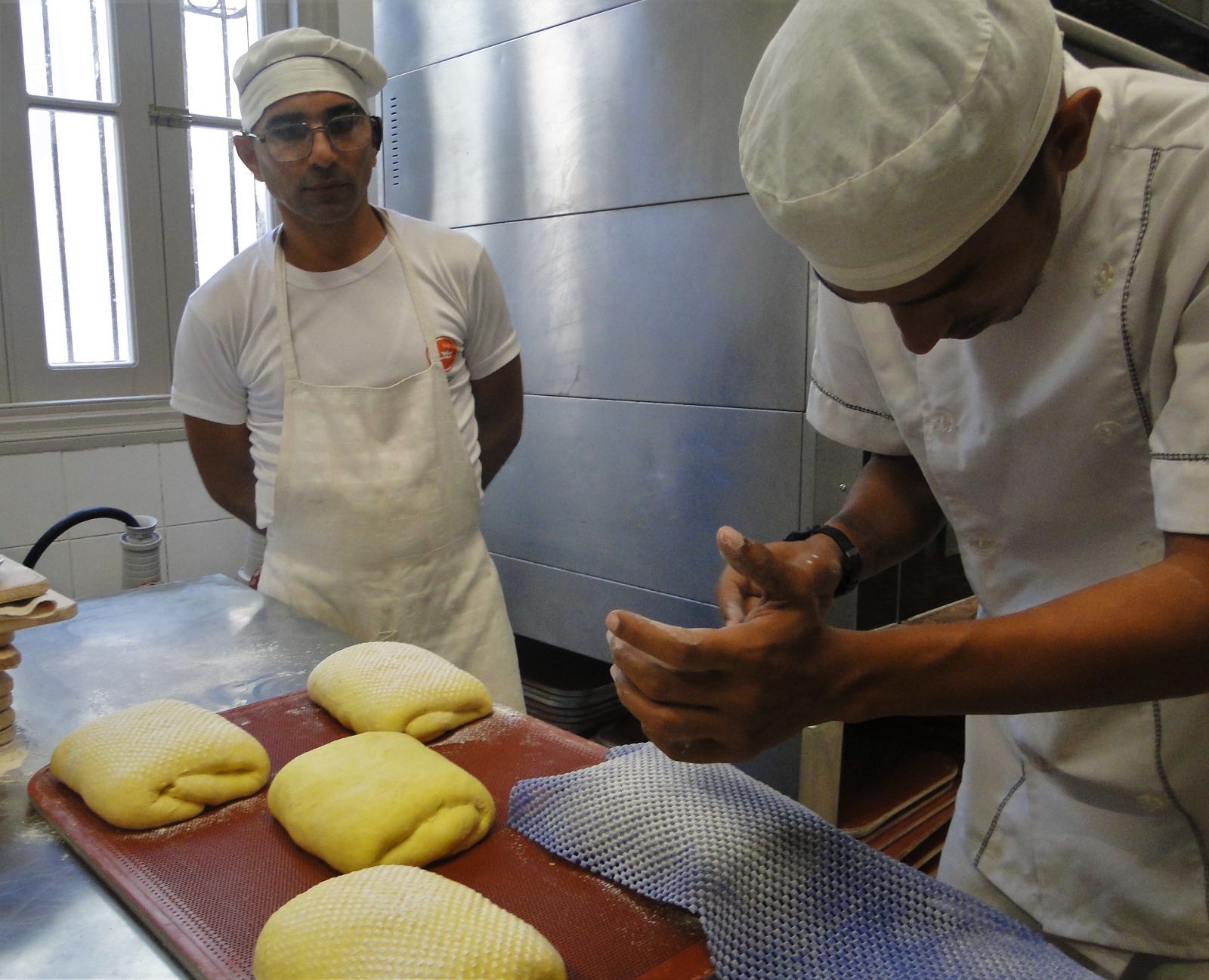
But it is not just about bread. Pastries are the other attraction, so they have had to look for personnel with experience in this area.
Lázaro Didier has always been a confectioner. “Before I worked for the State and then in private confectioneries, but now this is another level. The difference is notable, first in the conditions under which one works, with a large and perfectly clean production area, with all the instruments that you need to work, with the raw materials that you dreamed of, and that translates into the good results of the final preparation. I only saw these things in videos; now I can do them myself. And if you also have a teacher in front of you, you can learn it better.”
All the recipes that they are offering are new, prepared by master bakers from Spain.
“Discipline is fundamental in an undertaking like this,” confesses Lázaro, “and, unfortunately, we come with bad habits from other sectors. In Cuba, a lot of work has been done out of necessity. You have to guarantee the day to day, so sometimes the common sense or sense of belonging is lost when something belongs to the State, which, as it has few resources, is done as it comes, but here it is not like that.”
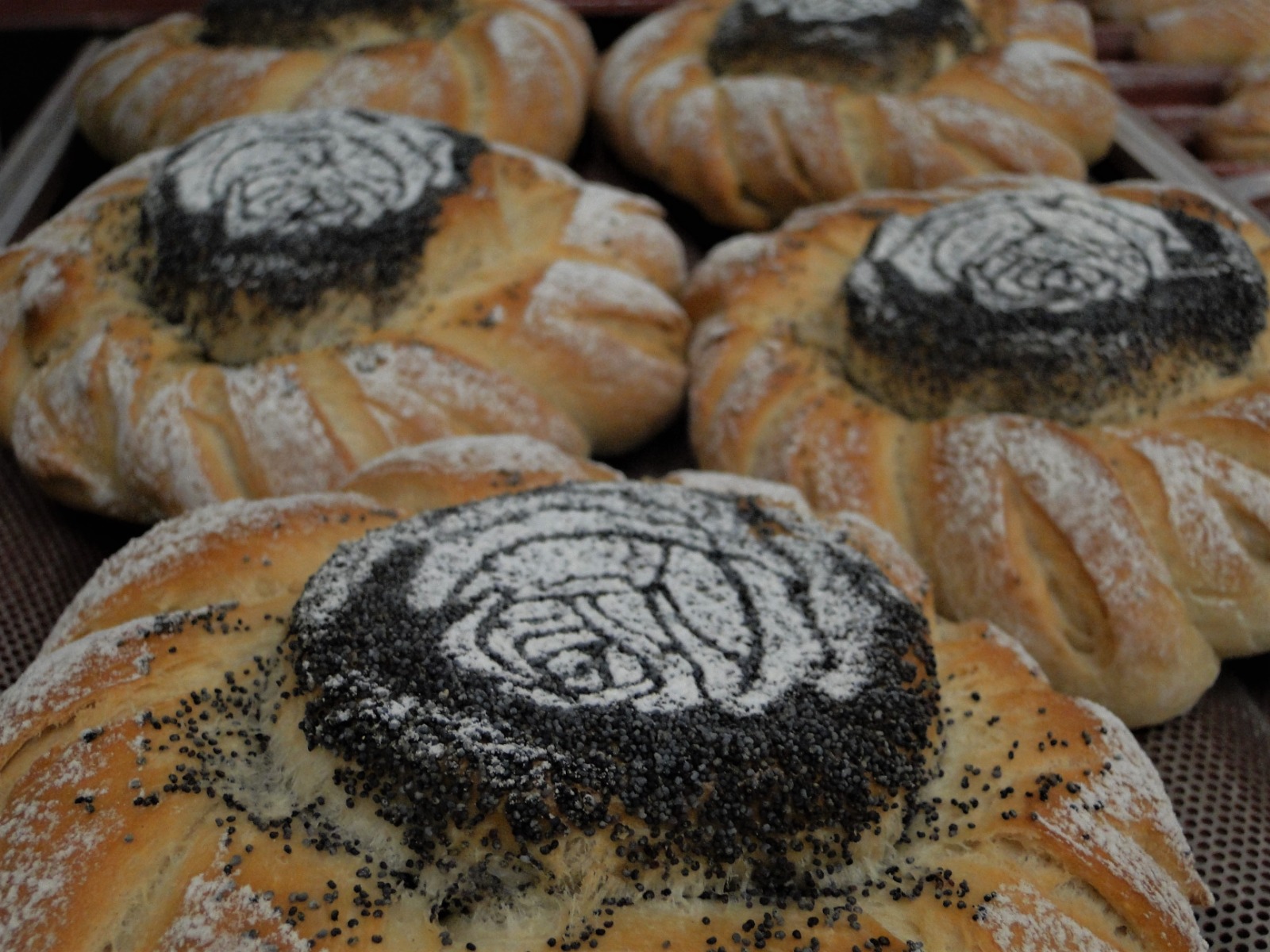
A unique bread
Antoni Ribas did not come to Havana alone. Josep Pascual, World Bread Ambassador, shared the experience of the opening of Pan de La Habana.
“The team we have worked with is very motivated because after each task we taste everything that has been made during the day. This is a high-level bread, not only in Cuba, but anywhere in the world. Everyone is amazed when they notice these different flavors that do not need any extra additions to make them taste good.”
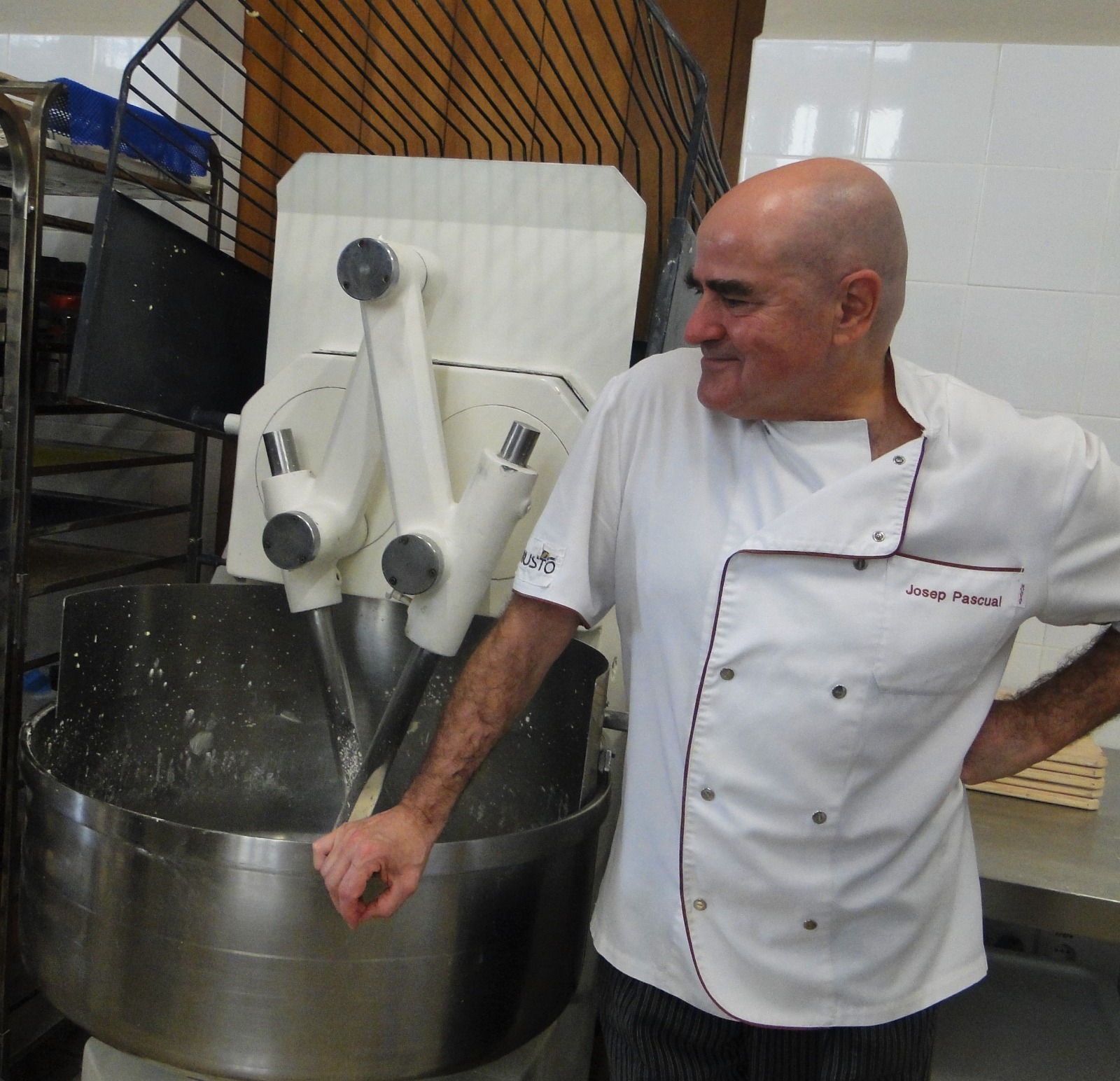
Both master bakers have done their job well: “It has not been difficult to teach again. The team was completely open to learning, and they know me from social media. They were waiting and wanting to acquire that knowledge, change the ways they worked before and incorporate new routines,” Pascual confesses.
“I reinvent the recipes in every part of the world. No one does it the same way, so I study the culinary customs of each territory, to somehow understand how they eat bread, at what time and what it is accompanied with. Then you have to modify the recipes to satisfy the needs and expectations of each territory, but without losing the nutritional guarantee or the aesthetics. I already knew Cuba, so it was much easier for me to adapt to the Cubans, and I am fascinated by the culture of this country.”
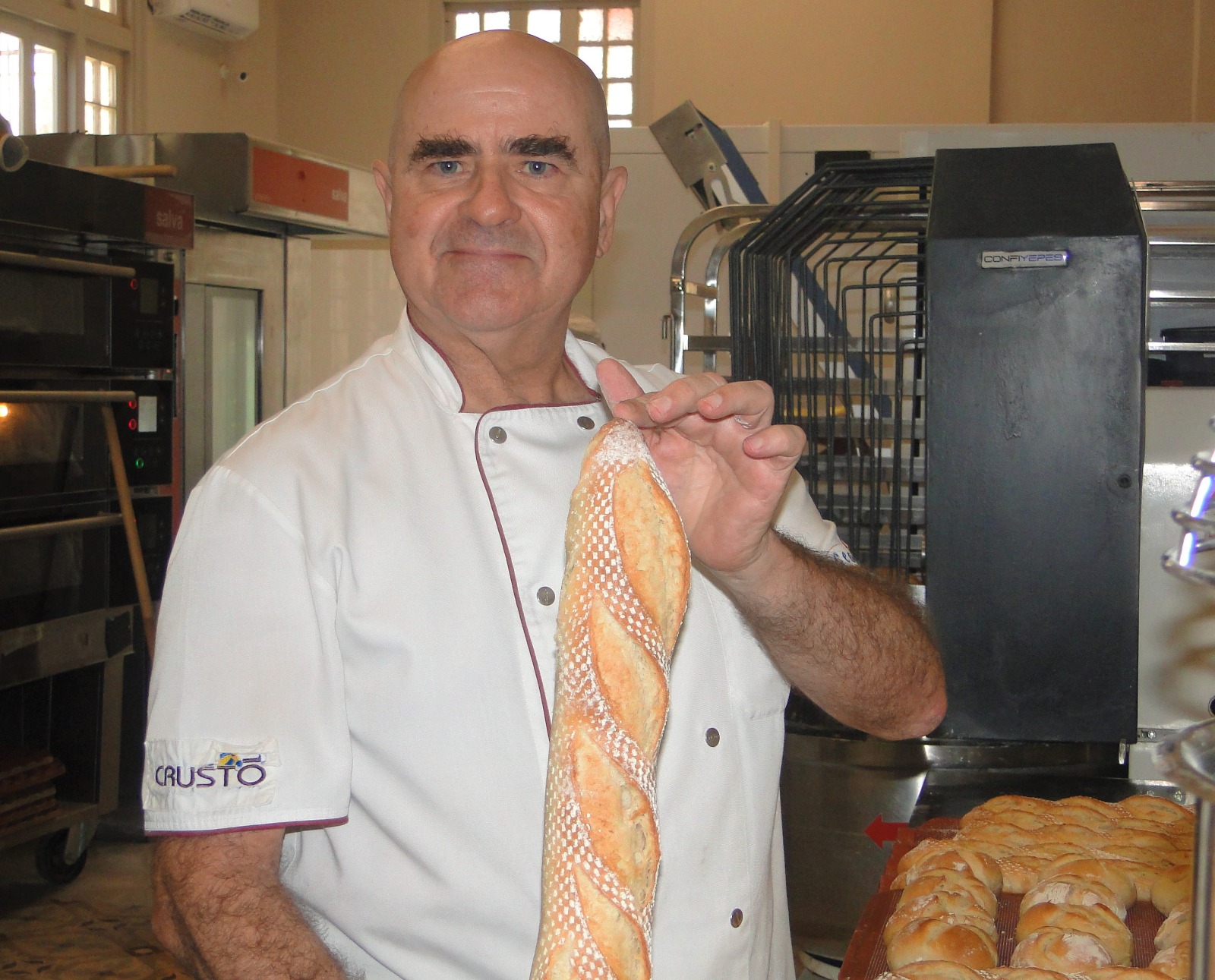
Those who knew the most
Laura knew that sharing her experience with Josep Antoni and Josep Pascual would add value to her business.
“When we thought about opening a bakery, we were clear that we had to join forces with those who knew the most. Here we began to think about something unique, not only in how the bread is made, but also in quality, because it happens in many countries that when there is a crisis, prices go up and quality goes down. That is a mistake,” says the owner.
“My idea is to make quality bread that is relatively inexpensive; but I can’t give away the work because all the raw materials are brought from Spain, even the salt, and that costs a lot. I know that this line of bread is for people with a high purchasing power; that is why we have a more economical line, to reach everyone.”
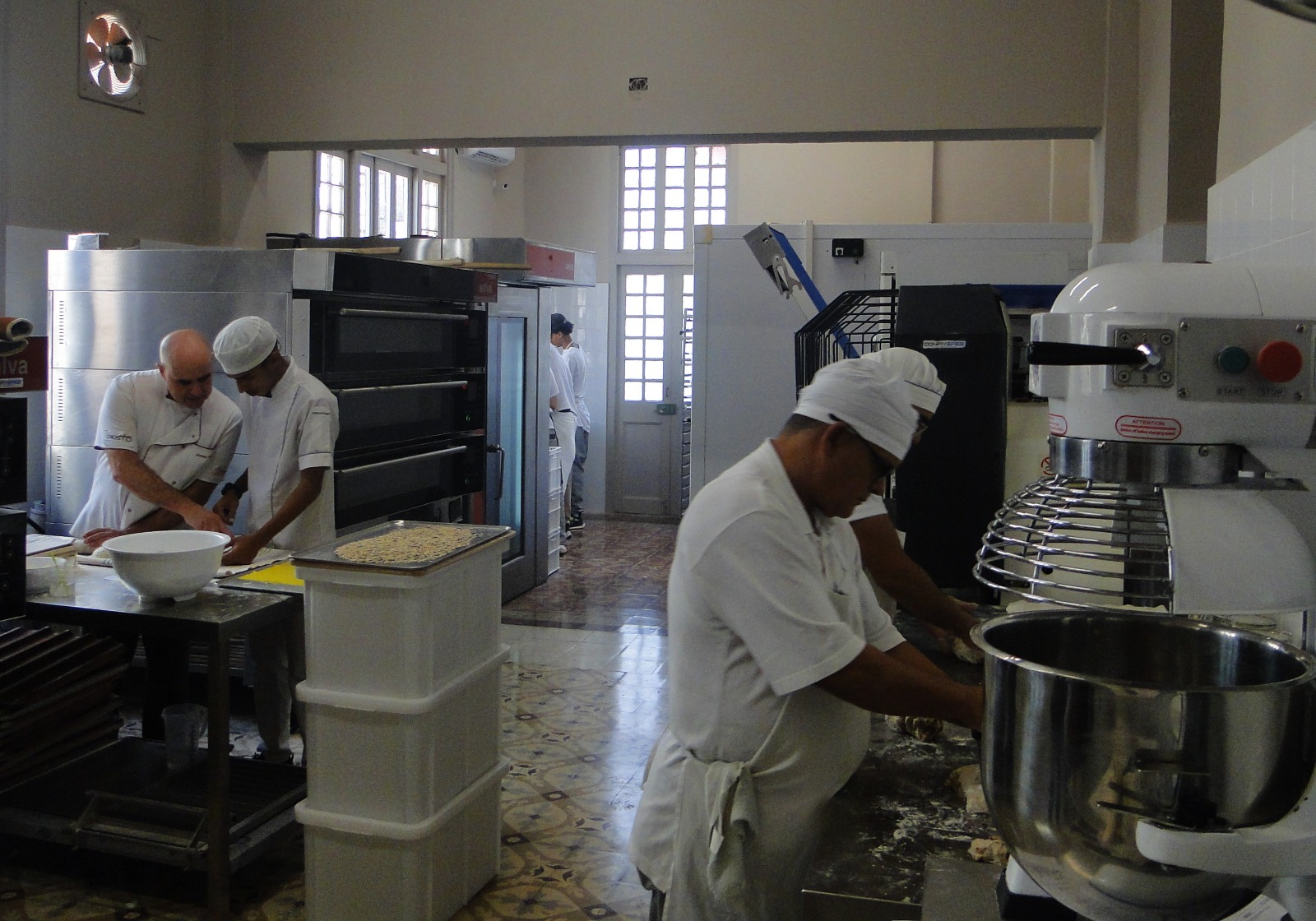
Laura has not only thought about offering bread for all budgets, but she is also helping with food for the SAF (Family Care System) adjacent to her establishment. “After many procedures, they have authorized me and we are collaborating with what we produce, for the moment. We are giving our bread several times a week. We also collaborate with food on special occasions.”
“Now in Cuba there are many MSMEs. I believe that if we all put in our two cents, we can help a lot. It is true that enterprises have to be profitable, that they were created to make money, but there has to be a social contribution. If your environment is good, you are good. At this time we have to be a single country. But for that the government has to trust in small and medium-sized companies, because SMEs anywhere in the world are the ones that carry the weight of the economy. We need more support.”
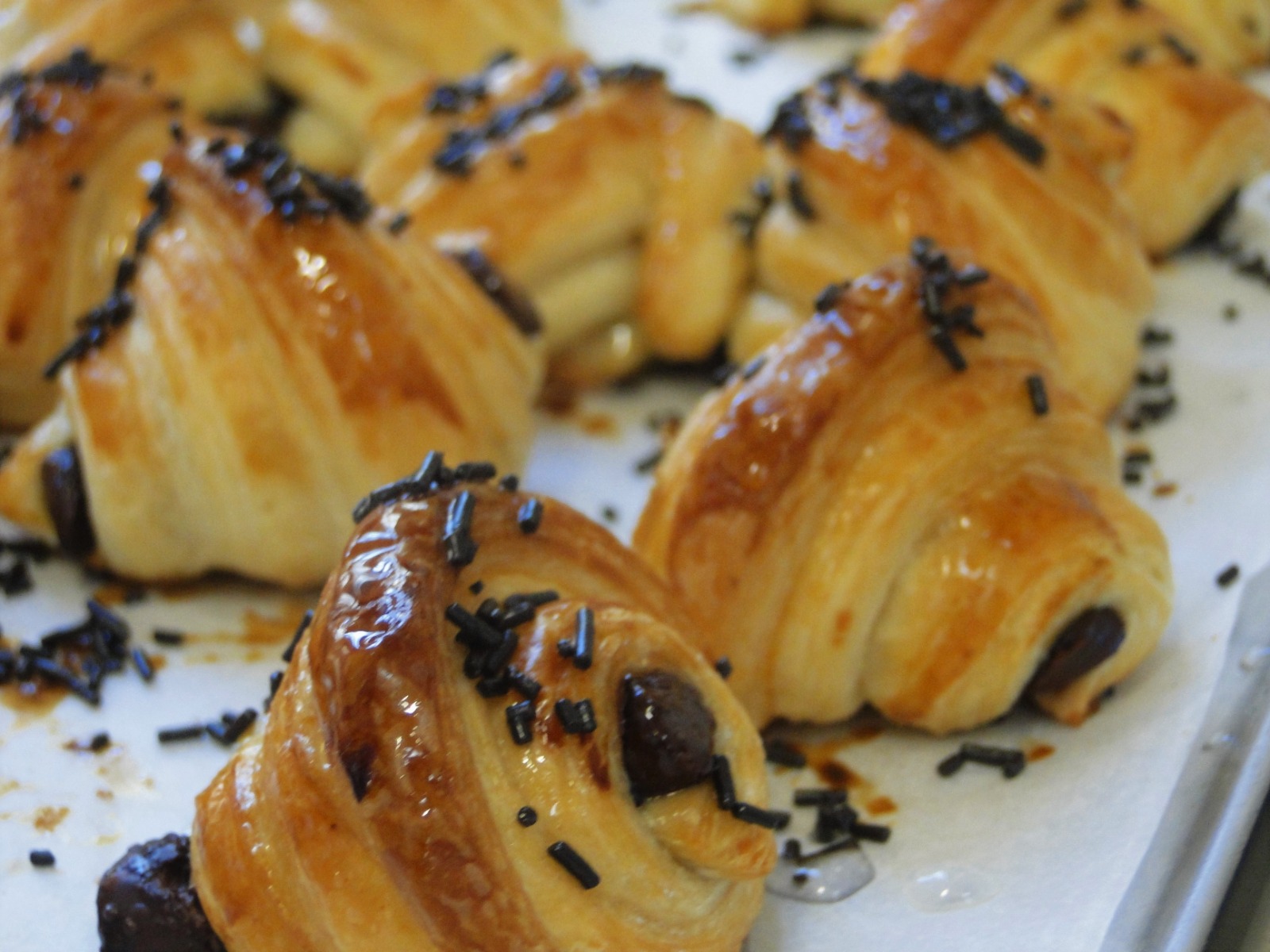
The favorite bread
Pan de La Habana will be another venture with many challenges ahead in today’s Cuba. Maintaining the quality-price ratio will be one of them. Everything depends on the will and initiatives of its team, led by a woman and with the advice of great master bakers from around the world.
“I eat all kinds of bread,” says Josep Pascual. “You have to try them to be surprised or disappointed. I always recommend Galician bread, it’s the one I would eat every day, but for me it is because in my culture it is eaten with certain foods that are the daily ones, but for a Colombian or a German it will surely be another. Each culture has its favorite bread. But among all of them is Pan de La Habana, which will be the best in the world.”
________________________________________
Where: Calzada Street #709 between Paseo and A. Vedado. Plaza de la Revolución. Havana
Hours: Every day from 8:00 am – 8:00 pm
Contacts: 78308970 / +53 63114568

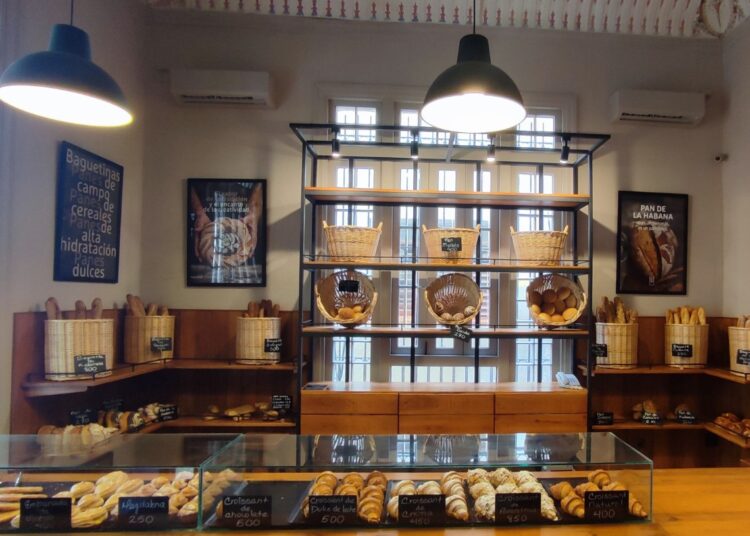









PUEDO COMPRAR PAN ARTESANAL DESDE ESTADOS UNIDOS PARA MI FAMILIA EN CUBA LA HABANA.
GRACIAS